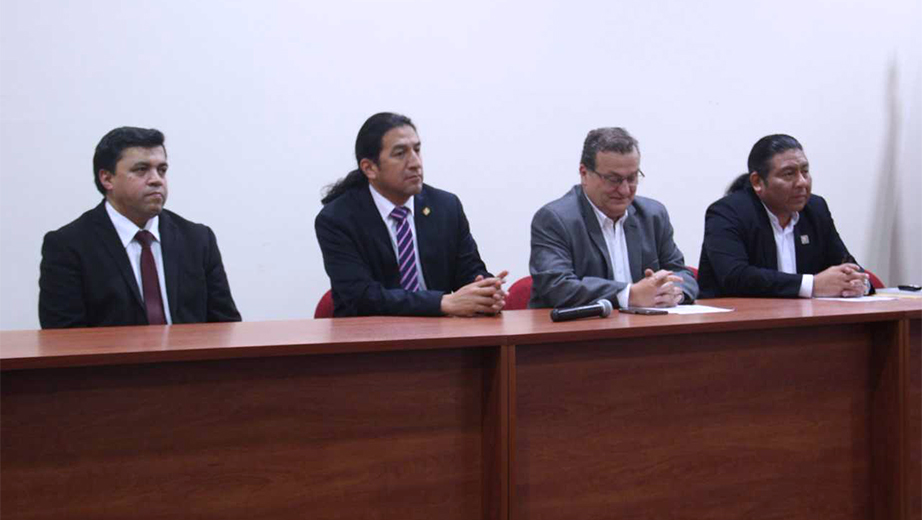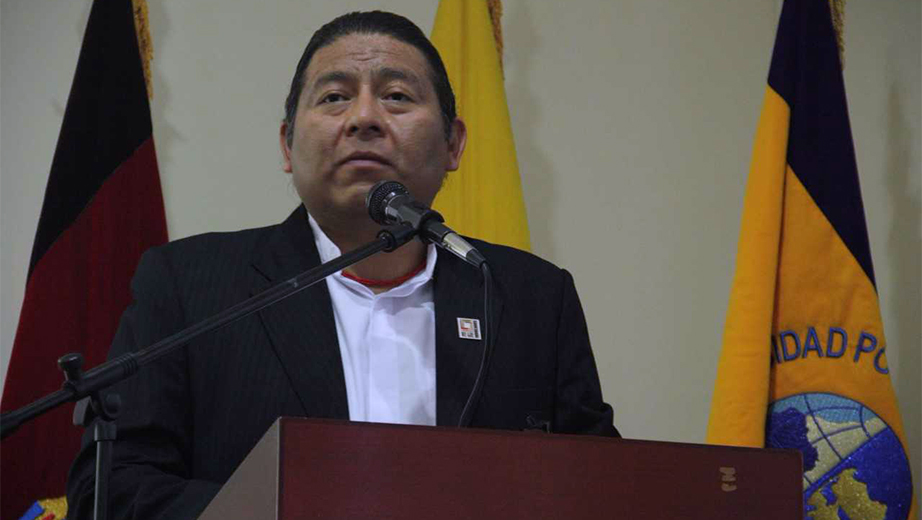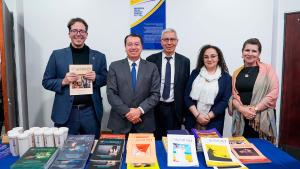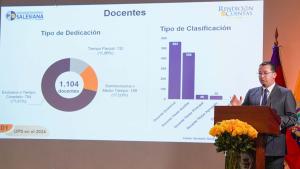Indigenous communities and the development of Latin America
Indigenous communities and the development of Latin America

Alvaro Pop, technical secretary of the Fund for the Development of Indigenous People for Latin America and the Caribbean (FILAC for its acronym in spanish), and former president of the United Nations Permanent Forum on Indigenous Issues, gave a lecture: "Indigenous communities and development in Latin America."
This event was held on June 27 and was organized by UPS and the Guatemalan Embassy. The meeting was attended by Guatemalan Ambassador Luigi Ixchot, the Vice-president of UPS Quito, José Juncosa, the Director of the Local Management program, Pablo Ortiz, as well as communication students, professors and members of the accredited diplomatic corps in Ecuador.
Jose Juncosa welcomed attendees and emphasized the historical debt society has with indigenous people. He invited people to address and discuss these issues to make an intercultural Latin American society possible. Ortiz, pointed out that the rights of the territories of indigenous people in Ecuador are harassed by the primary export model. "The agenda for the construction of the Pluricultural State is pending and UPS has been accompanying these processes for many years. Students from indigenous communities and nationalities have graduated here and now contribute from their territories to a more intercultural and inclusive society," he said.
Pop spoke about the Sustainable Development Goals (ODS for its acronym in Spanish) and noted that they imply a major international commitment that must be assumed by all countries. "ODS must be tools for the fulfillment of Human Rights including the Rights of Indigenous People."
He added that the creation of intercultural societies requires the culmination of processes of decolonization in which they are now, as well as the dismantling of racist and discriminatory structures. "It is necessary to expand and strengthen democratic systems incorporating the collective rights of indigenous communities and institutional changes, as well as public policies that incorporate the demands of indigenous people," he said.






Follow us
Follow us